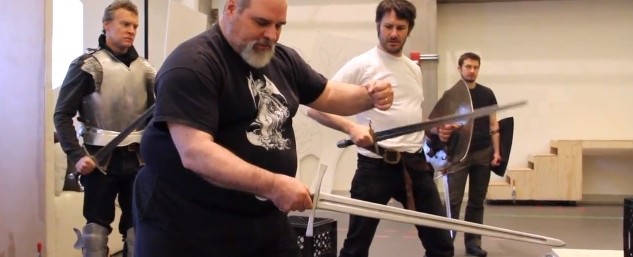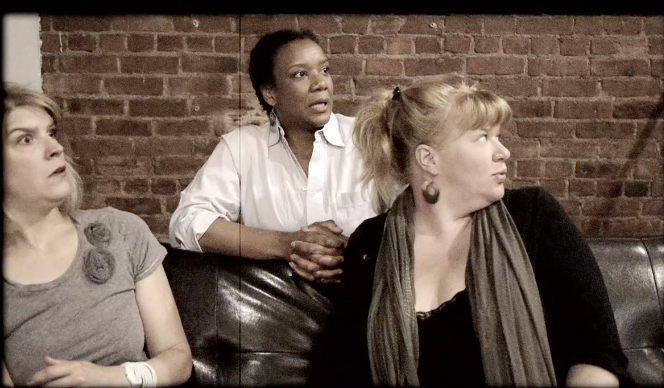Hi there! I'm Mark Blankenship, Theatre Development Fund's Online Content Editor and the captain of the zany ship we call the Theatre Dictionary. Welcome aboard. Perhaps you're wondering why this dictionary exists. Why are we creating short, playful videos that define theatre slang? Why are we collecting them on a reference website?
Why?!? Here's the simplest reason: Because Theatre Development Fund wants everyone to have access to the theatre. Sometimes, "access" means "access to discounted tickets," which TDF offers to its
members and to patrons of the
TKTS booths. Then there's the access provided by our
accessibility programs, which serve patrons with disabilities, and by
TDF Stages, our online magazine which takes readers behind the scenes of theatre and dance productions. But there's another way to get close to the theatre. You can learn its language. In every theatre in North America, whether it's a Broadway stage or a high school auditorium, people are speaking a universal language. Terms like "strike" and "blocking" and "house lights" are a part of any production, and they help make the theatre a unique and exhilarating culture. The Theatre Dictionary puts all that language in one place. Around here, every term gets its own webpage, complete with a "definition video," a descriptive essay, and helpful links. We want everyone who visits these pages---audience members, artists, etc.---to learn something new. We want our visitors to pick up tidbits about how the theatre works, serves, and inspires. In short: We want to give our readers unique access to the culture of American theatre. We also want the Theatre Dictionary to
celebrate these words, not just define them. That's why we're creating playful videos to illustrate each term. It makes everything more fun. We're also partnering with theatre artists and theatre students to help us make videos for the dictionary: We figure that working artists have the most creative ideas about the language they use every day, and we love seeing what they come up with. And of course, we want to hear from YOU. At the end of the day, it's almost impossible to "perfectly" define a word---any word---and we think of our videos and essays as being the
start of a conversation, not the final say. If you want to add a definition or share a story or even make a video of your own, then we want to hear from you. That's why every term in the dictionary also has a "feedback page," where you can join the conversation. So that's why we're doing this: We want to be a reference tool and an art project. We want to bring people closer to the theatre and have a good time while we do it. We want everyone to be part of the fun. Thank you for joining us as we get started. Personally, I can't wait to see where we go.

